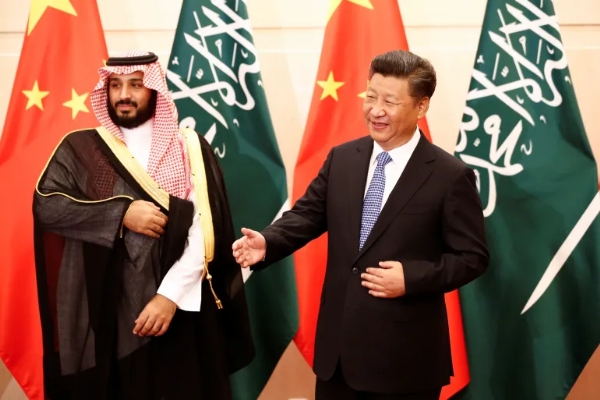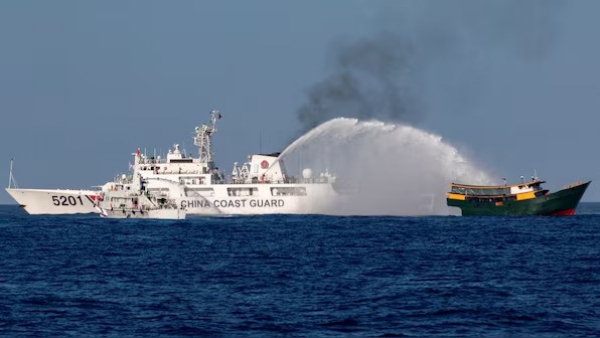Will China Push the U.S. Dollar Out of the Middle East?

For Gulf states, balancing the use of the dollar and the renminbi will become a way of maintaining strategic neutrality amid global geopolitical fragmentation.
The Limits of China’s Economic Influence
Economic interdependence in the Asia-Pacific and beyond has facilitated China’s use of economic statecraft – the manipulation of trade or investment ties for political purposes. Beijing has become more active at using both coercion and inducements in attempts to shape the actions of governments as well as companies.
While China’s economic statecraft has altered the strategic calculations for many countries and could have far-reaching implications for the trajectory of great power competition, Chinese influence is not a foregone conclusion. Beijing has encountered considerable pushback and often shot itself in the foot, suggesting that the world need not be overly concerned about undue influence. At the same time, the diffuse lure of economic interdependence remains a powerful draw, and one that is hard for Washington to tackle head-on without offering alternative or complementary economic opportunities.
China has met with some successes but also many failures in its attempts at economic influence. Subversive carrot tactics have allowed China to make inroads in places where leaders can act with relative impunity, such as Cambodia, but have backfired in countries where leaders face accountability mechanisms. While seemingly an easy and cheap approach to get immediate payoffs, under-the-table carrots spark public dissatisfaction and elite contestation, with Beijing and Chinese-financed projects often getting entangled in political scandals and election campaign rhetoric.
China’s Economic Collision Course, As Growth Slows, Beijing’s Moves are Drawing a Global Backlash
China’s trade imbalances are not sustainable for the rest of the world, and China should not be surprised if foreign governments start to respond more aggressively. Beijing is likely to reject measures similar to those the United States and its partners adopted in the 1980s to address Japan’s trade imbalances, such as an exchange rate arrangement resembling the Plaza Accords or Louvre Accords.
Tariff hikes on Chinese imports, another policy available to foreign governments, may only provide temporary relief; when the Trump administration imposed such levies, many Chinese suppliers were able to skirt these regulations by shipping goods through third countries before they reached their final destinations in the United States. With few effective policy options and an unwilling negotiator in Beijing, Western governments in particular will consider increasingly draconian restrictions on Chinese trade.
That shock may be what is necessary for China to take structural reforms seriously, for the sake of its own economic health and in the hope of avoiding an irreparable split in global trade.
China coast guard water-cannons Philippine ship days after US backs Manila in disputed sea

China’s coast guard used water cannon against Philippine boats in a contested area of the South China Sea on Saturday, the latest in a string of maritime clashes between the two countries.
The skirmish comes just days after US Secretary of State Antony Blinken reiterated Washington’s commitment to defending Philippine access to the vast waterway, which China claims sovereignty over, sparking increasing clashes with its neighbors in recent years.
Video of the incident showed a Philippine civilian vessel taking “heavy damage” from the water cannon, according to the Armed Forces of the Philippines.
Philippines summons China envoy over stand-off, dares Beijing to seek arbitration
The Philippines summoned China’s envoy on March 25 to protest against “aggressive actions” in the South China Sea at the weekend, as Manila’s Defence Minister dared Beijing to bolster its vast sovereignty claims by taking them to international arbitration.
The Foreign Ministry accused China’s coast guard of using water cannon against a civilian boat supplying troops on March 24 at the Second Thomas Shoal, which it said damaged the boat and injured some crew members, the latest in a series of flare-ups in the past year.
“China’s continued interference with the Philippines’ routine and lawful activities in its own exclusive economic zone (EEZ) is unacceptable.

No comments:
Post a Comment